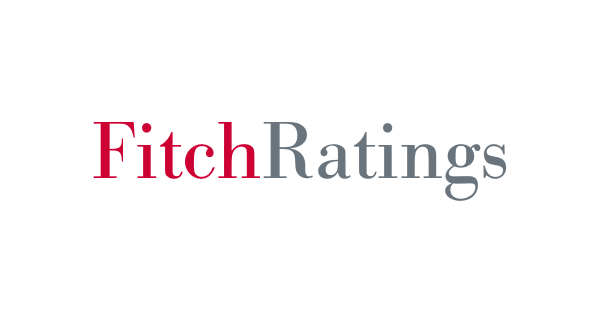China's latest LPR cut to impact banking sector's net interest margin

By MG News | February 26, 2024 at 10:22 AM GMT+05:00
February 26, 2024 (MLN): China’s latest cut of its five-year loan prime rate (LPR) will narrow the banking sector’s average net interest margin (NIM) by around six basis points (bp) over 2024 and 2025, equivalent to around 5% of overall net profits, assuming other factors remain constant, Fitch Ratings estimates.
State-owned banks will see a more significant impact than smaller peers because of their proportionately higher exposures to mortgages and infrastructure loans, which usually reference the five-year LPR.
Fitch believes the rate cut will deliver only a minor boost to economic activity.
China’s central bank announced a 25bp reduction to the banks’ five-year LPR, a benchmark interest rate commercial banks use for long-term lending, bringing it down to 3.95%, on 20 February.
The latest cut is the largest since the LPR was established as the main lending rate benchmark in 2019, continuing a recent trend of rate reductions.
This will drive a further squeeze on banks’ NIMs, after a 22bp contraction in 2023.
This is especially the case as retail and mortgage loan demand remains tepid, resulting in persistent revenue pressure on commercial banks.
Sector NIM declined to 1.69% in 2023, from 1.91% in 2022, partly reflecting policy directives to support certain strategic sectors with cheaper bank financing and repricing of existing mortgages.
Most recently, the government has also called on large state banks and some of the larger joint-stock banks to finance residential property development projects included in a list drafted by the authorities.
Fitch believes these directives could add to the revenue pressure banks already face, and may negatively affect asset quality if the banks had no exposure to these projects previously.
That said, Fitch expect banks to lower deposit rates to mitigate rising NIM pressure. Chinese banks have already cut deposit rates four times since September 2023.
The reserve requirement ratio may also come down, but this will not be sufficient to reverse the downward trend in margins we expect to continue in 2024, as reflected in Fitch's ‘deteriorating’ outlook for China's banking sector.
The latest rate cut showcases the government’s ongoing efforts to bolster economic growth and counteract a slowing trend. However, we believe the impact may be limited, serving more to reduce downside risks in the property sector and the broader economy.
Lower mortgage rates will ease the monthly financial burden for homeowners, but we assess that the current constraint on housing demand is not so much about affordability but a lack of confidence in developers’ ability to deliver quality homes on time.
In addition, most mortgage loans are repriced in January every year, meaning most existing loans will only benefit from lower lending rates from January 2025.
Other factors like a shifting supply-demand dynamic and households’ more cautious attitude towards borrowing are also affecting homebuyer sentiment.
The potential decrease in income from falling deposit rates could make households more careful, leading them to spend less, especially since China has high savings levels. These factors could lessen the intended boost to economic activity from the rate cuts.
In an upside scenario where lower rates, along with additional policy actions, boost loan demand – particularly in real estate banks would gain from an uptick in loan activity. Residential mortgages, traditionally one of the safer assets for banks, could drive this growth.
Asset-management companies with significant exposure to real estate could also see a positive shift.
A steadier property market might lead to shorter holding periods, better returns on property assets and an upward revaluation of holdings.
For securities firms, lower rates might offer a short-lived lift, but long-term performance in their capital-market businesses still relies heavily on a broader economic upturn.
Copyright Mettis Link News
Related News
| Name | Price/Vol | %Chg/NChg |
|---|---|---|
| KSE100 | 128,199.43 336.91M |
2.05% 2572.11 |
| ALLSHR | 79,787.62 1,023.63M |
1.53% 1202.91 |
| KSE30 | 39,105.00 121.90M |
2.49% 951.21 |
| KMI30 | 186,915.61 131.16M |
1.10% 2029.11 |
| KMIALLSHR | 54,201.88 553.60M |
0.81% 438.07 |
| BKTi | 33,476.68 51.49M |
4.87% 1555.00 |
| OGTi | 27,962.58 9.77M |
0.68% 188.60 |
| Symbol | Bid/Ask | High/Low |
|---|
| Name | Last | High/Low | Chg/%Chg |
|---|---|---|---|
| BITCOIN FUTURES | 105,755.00 | 106,200.00 105,625.00 |
5.00 0.00% |
| BRENT CRUDE | 67.11 | 67.29 67.06 |
0.00 0.00% |
| RICHARDS BAY COAL MONTHLY | 97.50 | 97.50 97.50 |
0.70 0.72% |
| ROTTERDAM COAL MONTHLY | 103.80 | 103.80 103.80 |
-3.45 -3.22% |
| USD RBD PALM OLEIN | 998.50 | 998.50 998.50 |
0.00 0.00% |
| CRUDE OIL - WTI | 65.40 | 65.65 65.34 |
-0.05 -0.08% |
| SUGAR #11 WORLD | 15.70 | 16.21 15.55 |
-0.50 -3.09% |
Chart of the Day
Latest News
Top 5 things to watch in this week
Pakistan Stock Movers
| Name | Last | Chg/%Chg |
|---|
| Name | Last | Chg/%Chg |
|---|




 CPI
CPI